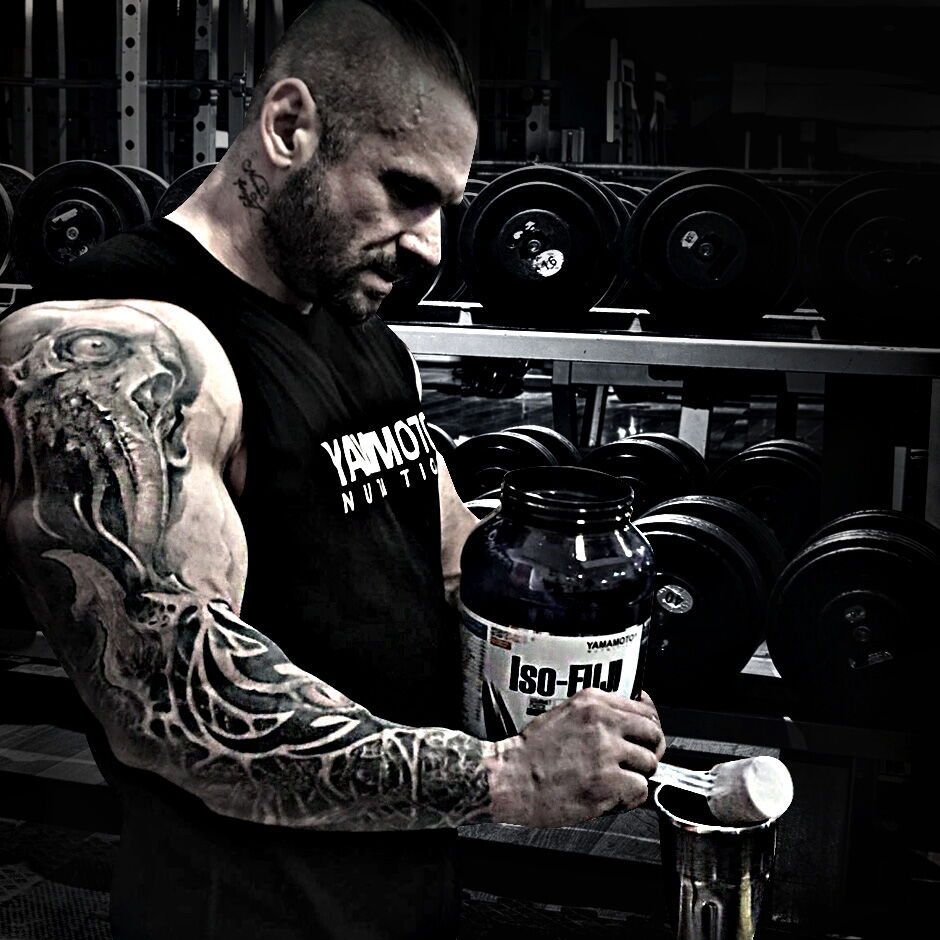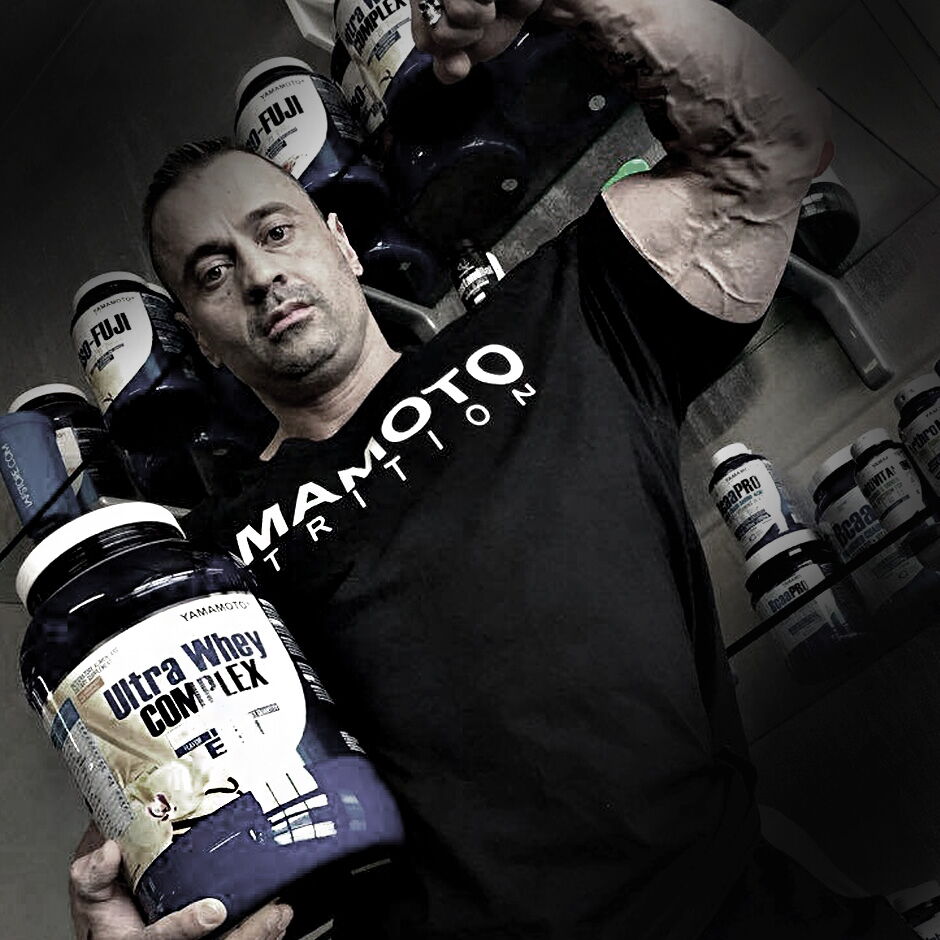Bodybuilding supplements are commonly used by those who exercise with weights or practice athletics.
Bodybuilder-specific supplements are made and used to enhance weight gain, promote weight loss or enhance athletic performance.
The best known and most used are undoubtedly: multivitamins, Protein, branched chain amino acids (BCAAs), glutamine, essential fatty acids, creatine, thermogenics and tonics. Supplements are sold as single-ingredient preparations or in "stack" form - blends of various active ingredients marketed to offer synergistic benefits.
While many bodybuilding supplements are also consumed by the general public, their relevance and frequency of use may differ when used by bodybuilders in particular.
Annual sales of specific sports nutrition products in the United States is over $ 2.7 billion (US) according to Consumer Reports. [1]
History
In the ancient Grecia, athletes consumed large quantities of meat, wine and herbal concoctions to enhance strength, stamina, skill and endurance [2]. In 1910 Eugen Sandow , considered the first modern bodybuilder of the West, followed a particular diet to try to improve and promote muscle growth. Later, bodybuilder Earle Liederman advocated the use of beef and meat prepared as a consommé to improve muscle recovery. In 1950, as bodybuilding became more popular, Irvin P. Johnson began marketing egg-based protein powders. In the 70s and 80s the marketing and diffusion of bodybuilding supplements had an exponential growth.
In the United States, in October 1994, the Dietary Supplement Health and Education Act (DSHEA) decided that a supplement manufacturer is responsible for marketing and safety. Dietary supplements do not need approval from the Food and Drug Administration (FDA) before being marketed. Except in the case of a new ingredient, the manufacturing company is required to provide evidence of safety and efficacy to the FDA.
Protein
Bodybuilders often supplement their diets with protein powders . The powder is mixed with water, milk or fruit juice. Protein powders are generally consumed immediately before and after exercise, or as a substitute for a meal. Some types of protein must be taken immediately before and after a workout (whey protein), while others are taken before bed (casein) [9] The theory behind this type of supplement by the bodybuilder is in the fact that the administration of a higher amount of protein than the average serves to support the growth of muscle mass [10]

Protein supplements are available in various forms : smoothies (RTD Ready to drink), bars , snacks , oats , gels , powders . Protein powders are available in various flavors.
- Whey protein contains high levels of essential amino acids and branched chain amino acids. They also have the highest cysteine content. Per bodybuilders, whey protein provides important amino acids to aid muscle recovery. [9] Whey protein is derived from the cheese making process. There are three types of whey protein: whey protein concentrate , whey protein isolate , hydrolyzed whey protein. Concentrated whey protein has a protein content ranging from 29 to 89%, while whey protein isolate is often over 90%. Hydrolyzed whey Protein are enzymatically predigested and therefore have the highest digestibility rate of all other types of Protein. [11]
- Casein protein has another glutamine content
- Soya protein from soybeans contains isoflavones
- Since egg Protein are not derived from dairy products, they do not contain lactose (then it depends on contamination)
- Hemp seeds contain complete and highly digestible Protein. Hemp oil is rich in essential fatty acids
- Rice protein is a complete source of highly digestible, allergen - free protein (it depends on contamination). Because rice protein is low in lysine, it is often combined with pea protein powder to achieve a superior amino acid profile.
- Pea protein has a lighter texture than most protein powders. Pea protein has an amino acid profile similar to that of soy.
Although it is believed that athletes and bodybuilders need a higher protein intake , the exact amount depends on many factors such as: type and duration of training , physiology of the individual , age , sex , weight .etc .. [12] Some experts believe that protein supplementation is useless as food already brings quantitative and nutritious tastes. [12] However, there is a lot of evidence to support the idea that protein shakes are superior to foods from the point of view of VB and from the point of view of improving post-workout muscle hypertrophy. Plus, for those athletes who don't have the time to prepare post workout meals, protein shakes are a great alternative.

Some dieters suggest that low-calorie, vegetarian, or non-dietary diets may benefit from using protein supplements [13] However, in the case of people following vegetarian diets, the Institute of Medicine of the National Academies states : "The available data do not support and do not recommend a separate protein requirement for vegetarians who consume complementary vegetable protein blends" [14]
Protein overdose can lead to loss of appetite, which may be beneficial for some dieters. [15] Nutritionists also argue that excess protein intake can cause osteoporosis [1] However recent research has questioned these claims and suggests that increased calcium excretion may be caused by increased absorption of calcium in the intestine due to increased protein intake. [16] [17] Indeed it is well known that Protein are important for bone growth. [18] Nutritionists in any case are against a protein excess as increasing protein consumption will lead to an increase in body fat.
A research by Tarnopolsky et al. (1988) showed that for bodybuilders, 0.96 g of protein per kg of body weight per day is recommended, while endurance athletes require 1.34 g per kg per day. Their results indicated that protein requirements are actually much lower than would be expected and that protein supplements, therefore, may not be as effective.
It should be noted that both of these levels are significantly higher than the recommended levels for the general population (0.8 g of protein / kg of body weight). [19] The study concluded that bodybuilders require only slightly more daily protein intake during training than sedentary individuals in maintaining lean mass and that endurance athletes require higher daily protein intake than both bodybuilders or sedentary individuals to meet catabolism needs during exercise ". [19]
Other studies suggest that the protein requirement must be higher for anaerobic activities than for aerobic ones. The opposite of the one presented by Tarnopolsky. Aerobic endurance athletes may have an increased daily protein intake of 1.2-1.4 g per kg of body weight per day. Athletes who engage in anaerobic activity can increase their daily protein intake by up to 1.4-1.8 g per kg of body weight in order to increase muscle protein synthesis or to compensate for the loss of amino acids during exercise. [20]
Branched Chain Amino Acids (BCAAs)
Amino acids are the building blocks of Protein. Amino acids are classified as essential, conditionally essential and non-essential.
There are three branched chain amino acids (BCAAs): leucine, isoleucine and valine. All three are essential amino acids. Each has numerous benefits over various biological processes in the body. Unlike other amino acids, BCAAs are metabolized in the muscle and have strong anabolic / anti-catabolic Energy. [21] BCAAs represent 33% of muscle Protein.

glutamine
Glutamine is the most abundant amino acid in the human body . Many manufacturing companies present glutamine-based supplements in powder or tablet form. Glutamine is a special amino acid because our body is able to produce it in case of need, but in cases of very intense stress such as heavy sports training it may be necessary to resort to its integration.
Essential Fatty Acids (EFAs)
Essential fatty acids (EFAs) (alpha linoleic acid and linoleic acid) can be particularly important for bodybuilders. Fresh salmon and trout are rich in essential fatty acids. Flaxseed oil, often sold as a supplement, is a source of alpha linoleic acid. It can also be found in foods such as nuts and pumpkin seeds [22]
If we analyze a typical diet of the body builder, we will immediately notice the presence of different animal fats such as those derived from meat and eggs in prevalence, with a clear reduction in the consumption of "good" fats.
As one of the three macronutrients, fats play a vital role in the growth and development of the human body. They are involved in many physiological processes, from the formation of cell membranes, to nerve transmission, to the absorption of certain vitamins , to hormonal production, to the production of hormones.
Creatine
Creatine is an organic acid naturally produced in the body and provides energy to muscle cells especially in short and intense efforts. Numerous scientific studies have shown that creatine can improve strength [23] and energy [24] Creatine increases cell volumization by drawing water into muscle cells, making them larger. This intracellular retention should not be confused with the common myth that creatine causes bloating (intercellular water retention).
Many bodybuilders prefer creatine monohydrate over the other forms. Creatine is also believed to work best when consumed with simple carbohydrates. This can be achieved by mixing creatine powder with grape juice, lemonade, or many other high-glycemic index drinks. [25]
- McGinn, Dave (7 November 2010). "Are protein shakes the weight-loss magic bullet?".
Globe and Mail
- . Retrieved 1 December 2010.
- Dalby A., Food in the Ancient World A-Z, Routledge (2008) pp. 203
- 85 A.B.A. J. 60 (1999), Hard to Swallow; Higgins, Michael[page needed]
- Skip the Supplements, Paul A. Offit, chief of the division of infectious diseases at the Children’s Hospital of Philadelphia, and Sarah Erush, the clinical manager in the pharmacy department of the Children’s Hospital of Philadelphia. The New York Times, December 14, 2013.
- Tainted Body Building Products, FDA, December 17, 2010.
- Sports supplement designer has history of risky products, USA Today, September 27, 2013.
- Spike in Harm to Liver Is Tied to Dietary Aids, The New York Times, December 21, 2013.
- Slater, Gary, and Stuart M. Phillips. "Nutrition guidelines for strength sports: Sprinting, weightlifting, throwing events, and bodybuilding." Journal Of Sports Sciences 29, (December 2, 2011): S67-S77. SPORTDiscus with Full Text, EBSCOhost (accessed May 3, 2015).
- Wolfe, Robert R (2000). "Protein supplements and exercise". The American journal of clinical nutrition 72 (2 Suppl): 551S–7S. PMID 10919959.
- Journal of Sports Sciences, 2004, 22, 65–79 Protein and amino acids for athletes [1]
- "What is whey protein?". Top10Supps.com. Retrieved 19 February 2015.
- Nutrition Working Group of the International Olympic Committee (2003). IOC Consensus Conference on Nutrition for Sport. Lausanne
- Beck, Leslie (4 November 2009). "Shaking up the protein myth". Globe and Mail. Retrieved 1 December 2010.
- Dietary Reference Intakes for Energy, Carbohydrate, Fiber, Fat, Fatty Acids, Cholesterol, Protein, and Amino Acids (Macronutrients), 2005, 661-662 [4]
- "Alert: Protein drinks. You don't need the extra protein or the heavy metals our tests found". Consumer reports 75 (7): 24–7. 2010. PMID 20578336.
- Kerstetter, JE; O'Brien, KO; Insogna, KL (2003). "Dietary protein, calcium metabolism, and skeletal homeostasis revisited". The American journal of clinical nutrition 78 (3 Suppl): 584S–592S. PMID 12936953.
- Kerstetter, JE; O'Brien, KO; Insogna, KL (2003). "Low protein intake: The impact on calcium and bone homeostasis in humans". The Journal of nutrition 133 (3): 855S–861S. PMID 12612169.
- Dawson-Hughes, B; Harris, SS; Rasmussen, H; Song, L; Dallal, GE (2004). "Effect of dietary protein supplements on calcium excretion in healthy older men and women". The Journal of Clinical Endocrinology and Metabolism 89 (3): 1169–73. doi:10.1210/jc.2003-031466. PMID 15001604.
- Tarnopolsky, MA; MacDougall, JD; Atkinson, SA (1988). "Influence of protein intake and training status on nitrogen balance and lean body mass". Journal of applied physiology 64 (1): 187–93. PMID 3356636.
- Lemon, PW (1995). "Do athletes need more dietary protein and amino acids?". International journal of sport nutrition. 5 Suppl: S39–61. PMID 7550257.
- Karlsson, H. K. R. (2004). "Branched-chain amino acids increase p70S6k phosphorylation in human skeletal muscle after resistance exercise". AJP: Endocrinology and Metabolism 287: E1–7. doi:10.1152/ajpendo.00430.2003. PMID 14998784.
- Chapman, D. J.; De-Felice, J.; Barber, J. (1983). "Growth Temperature Effects on Thylakoid Membrane Lipid and Protein Content of Pea Chloroplasts". Plant Physiology 72 (1): 225–8. doi:10.1104/pp.72.1.225. PMC 1066200. PMID 16662966.
- Becque, M. Daniel; Lochmann, John D.; Melrose, Donald R. (2000). "Effects of oral creatine supplementation on muscular strength and body composition". Medicine & Science in Sports & Exercise 32 (3): 654–8. doi:10.1097/00005768-200003000-00016.
- Birch, R.; Noble, D.; Greenhaff, P. L. (1994). "The influence of dietary creatine supplementation on performance during repeated bouts of maximal isokinetic cycling in man". European Journal of Applied Physiology and Occupational Physiology 69 (3): 268–70. doi:10.1007/BF01094800.
- Schwarzenegger, Arnold; Bill Dobbins (1998). The New Encyclopedia of Modern Bodybuilding, 2nd ed. New York: Simon & Schuster Paperbacks. pp. 764–5. ISBN 978-0-684-85721-3.
